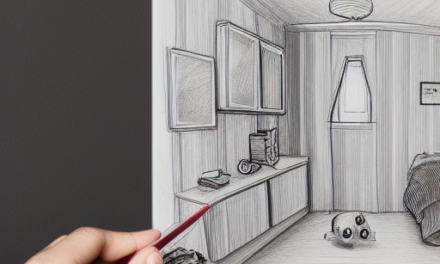If you’re looking for ways to be more productive and less stressed at work, you’ll want to learn how to become more organized. While getting organized may seem difficult at first, it’s a skill that you can develop and perfect over time. You can use tools like templates, digital to-do lists, and automations to help you get more organized. Below, you’ll find 17 actionable tips that will help you organize your life and get more done in a shorter period of time.
Organizing your to-do list
One of the first steps in becoming more organized is creating a to-do list. This list should then be prioritized. One method for this is to use the Eisenhower Method, which divides tasks into different levels of urgency and importance. Then, you can prioritize each task by the level of urgency it needs to be completed.
Once you’ve made a list, organize each item into categories. One category can be for urgent tasks, while another should be for routine tasks. You should also prioritize your tasks by difficulty. For example, if you feel overwhelmed by a lot of household chores, try dividing them into smaller, easier-to-complete tasks.
Another option is to color-code your to-do list by project or task priority. This helps you focus on important work while delegating lower-priority tasks to someone else. Delegating work can be awkward, but it’s also an act of validation and trust. Organizing your to-do list by task will give you more time for more important tasks.
While to-do lists are useful for keeping track of your to-do list, it’s important to not use them as a micromanaging tool. If you are constantly delegating tasks to another day, you’ll end up with unnecessary work and unnecessary stress. Organizing your to-do list by task priority will make it easier to complete your tasks, and you’ll be more likely to feel more organized overall.
Organizing your workspace
One of the best ways to become more organized is by organizing your workspace. This will save you time and frustration. It will help you focus on just one task at a time. Keeping your workspace organized will allow you to do your best work. No matter how large or small your workspace is, you need to make sure it is clean and free of clutter. Keeping your workspace clean will also give you visual cues to remember what you need to do.
Your workspace is a reflection of your personality. Keeping it clutter-free will give the impression that you are professional and are not easily distracted. Having an organized workspace also makes it easier to accomplish your goals each day. If you are just starting your new job, you should think about how you’ll use your workspace and what tasks will be most important to you. Creating a list of what you need to do and numbering them in order of importance will help you stay organized.
First, organize your office supplies. If you have many different types of paper products, keep them in separate containers. Group your writing instruments, legal pads, envelopes, printer paper, and envelopes into categories. This way, you’ll know right away where to find each type. Also, avoid storing paper files on the floor. Instead, store them in a filing cabinet or a cabinet that is accessible by your workstation.
Organizing your inbox
When organizing your emails, there are some things you should keep in mind. Organizing them by theme isn’t always a good idea; some emails deal with multiple topics. A better option is to organize them by status. For example, you might create a folder for each project and create sub-folders within it.
There are also a number of ways to make your inbox less disorganized. Creating a folder and rules for different emails is one way to help you prioritize emails. You can also set up filters to automatically sort your emails into specific folders. For example, you can move emails that you haven’t read to a folder labeled “Waiting” or “For Further Action.”
Organizing your inbox is a great way to reduce stress and create a clear strategy for managing email. You should also unsubscribe from ancillary emails. These emails clog your email flow. Unsubscribing to these types of emails can also help you organize your inbox.
In addition to setting up folders for your emails, you should set up a time to process emails each day. The best time to do this is right after you wake up. This will save you time and prevent unnecessary stress.
Keeping track of your time
Keeping track of your time is one of the keys to being more productive and organized. It will allow you to identify what activities are taking up your time and which are not. For example, keeping a log of how long you spend checking emails or checking Facebook can help you see where your time is best spent.
If you run a business, keeping track of your time is crucial to keeping your operations running smoothly. It also allows you to accurately gauge the productivity of your team and your own. This will help you to ensure that everyone is on the same page in terms of goals and priorities.
In order to stay organized, you should use different applications and systems to help you manage your time. One of the most effective tools is a digital calendar. You can use it to track all of your tasks and set deadlines. Having an organized calendar can help you stay on top of everything you need to do and make sure that you don’t miss any important deadlines.
It’s also important to stay focused. Organization can help you achieve your goals and free up your brain capacity. You’ll be more productive and less stressed if you don’t let critical tasks slip through the cracks.
Planning ahead
Planning ahead is a great way to stay organized and save time. You can categorize tasks by priority, how much work they require and so on. This way, you can easily find time to get things done and stay on schedule. The calendar can also be a great tool for benchmark goals and events.
The more you plan, the more successful you will be. If you have more time to work on a project, you will be able to finish it in a more efficient way. While you can’t plan for everything, there will be times when you need to take care of things quickly. Nevertheless, it’s important to plan ahead so that you can be ready for these unforeseen circumstances.
Taking regular breaks
Taking regular breaks is an excellent way to improve productivity. A recent study by the University of Illinois found that our attentional resources decline after working on one task for an extended period. Taking regular breaks allows us to refocus and keep a high level of focus. It’s also good for your health.
A break can be as simple as a walk or a short run. Even a few minutes of activity can make all the difference. Breaks also boost your creativity and make it easier for you to come up with new ideas. Taking a break to stretch, take a walk, or listen to music can be a great way to refresh yourself. It’s important not to work too long without taking a break, though.
Experts recommend taking regular breaks at various intervals throughout the day. The University of Illinois suggests taking at least one 20-minute break per hour, but the exact length of a break depends on what you do. Some people need longer breaks than others. For example, if you’re a computer worker, taking a break every half hour will keep your brain functioning at peak levels.
A proper break for lunch is also important. Studies have shown that those who take breaks regularly feel more appreciated by their employer. In fact, eight in ten employees who take regular breaks are more engaged in the company. They also scored higher on a variety of engagement metrics, including job satisfaction and likelihood to recommend the company.












